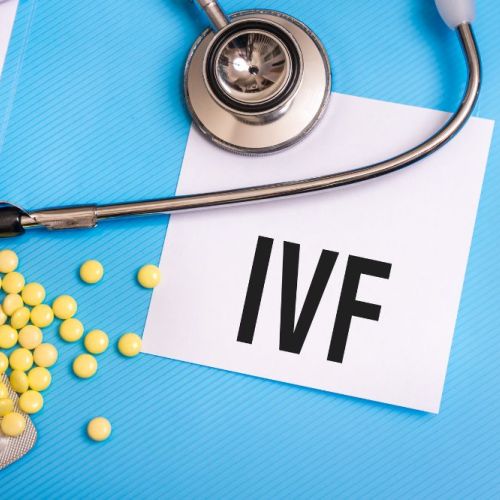How Long After Egg Donation Can You Get Pregnant?

Becoming an egg donor is a way to make a true difference in the life of another woman. There are several factors to consider if you’re interested in becoming an egg donor and there are a lot of questions we hear from potential egg donors at the Center for Reproductive Health. Some things potential egg donors want to know include what to expect from the procedure, how long it takes, how compensation works and what’s involved in the screening process.
Frequently potential egg donors are concerned about the effect donating eggs may have on their fertility if they decide to have a child someday. Women who have this type of concern ask questions like, “How long after egg donation can you get pregnant?”
Effects on Your Fertility
If you’re worried about possible effects on your fertility, you don’t need to be concerned. Women are born with between one and two million eggs. Each month, multiple eggs mature and one makes it to ovulation while the rest are absorbed by the body. Eggs that you donate are eggs that your body wouldn’t have used and would have reabsorbed. The procedure egg donors go through has no effect on remaining eggs or future fertility.
If you decide to go through with egg donation, your ovaries are hormonally stimulated. This means your fertility is heightened and it’s possible to get pregnant. For this reason, egg donors are asked to abstain from intercourse while taking fertility medication, which usually lasts three to four weeks.
How Egg Donation May Affect You
While you go through the egg donation process, you will inject yourself with hormones that stimulate your ovaries to enlarge and produce eggs. Because your body has higher hormone levels than normal, you may experience some side effects such as nausea, bloating, mood swings or pelvic discomfort. These side effects are temporary.
Once you have donated your eggs, the hormones are no longer being stimulated and your body gradually goes back to normal. Most women get their period within a week or two after donating eggs. Since your fertility has been stimulated, you’re more likely than usual to get pregnant the first month after egg donation, so it’s a good idea to be extra careful if you don’t want to get pregnant at this time.
Donating Your Eggs
If you become an egg donor, you’re making a commitment to follow through with the process from start to finish. This means showing up at appointments on time and following all the instructions you’re given, which include taking medication as directed, abstaining from sex for a few weeks and refraining from participating in high impact aerobics during this time.
There’s no evidence that donating eggs leads to future infertility. Giving someone else a chance to be a mother doesn’t mean you’re giving up your own chance of eventually getting pregnant. Get in touch with the Center for Reproductive Health if you’re interested in applying to be an egg donor or to have any other questions answered.
Eliran Mor, MD
Reproductive Endocrinologist located in Encino, Santa Monica, Valencia & West Hollywood, CA
FAQ
Reproductive endocrinology and Infertility is a sub-specialty of Obstetrics and Gynecology. In addition to managing medical and surgical treatment of disorders of the female reproductive tract, reproductive endocrinologist and infertility (REI) specialists undergo additional years of training to provide fertility treatments using assisted reproductive technology (ART) such as in vitro fertilization.
Reproductive endocrinologists receive board certification by the American Board of Obstetrics and Gynecology in both Obstetrics and Gynecology and Reproductive Endocrinology and Infertility.
In general, patients should consider consulting with an REI specialist after one year of trying unsuccessfully to achieve pregnancy. The chance of conceiving every month is around 20%, therefore after a full year of trying approximately 15% of couples will still not have achieved a pregnancy.
However, if a woman is over the age of 35 it would be reasonable to see a fertility specialist earlier, typically after 6 months of trying.
Other candidates to seek earlier treatment are women who have irregular menses, endometriosis, fibroids, polycystic ovary syndrome (PCOS), women who have had 2 or more miscarriages, or problems with the fallopian tubes (prior ectopic pregnancy).
Approximately 1/3 of the time cause for infertility is a female factor, 1/3 of the time a male factor, and the remaining 1/3 a couples’ factor.
At CCRH, we emphasize the importance of establishing a correct diagnosis. Both partners undergo a comprehensive evaluation including a medical history and physical exam.
Furthremore, the woman’s ovarian reserve is assessed with a pelvic ultrasound and a hormonal profile. A hysterosalpingogram (HSG) will confirm fallopian tube patency and the uterine cavity is free of intracavitary lesions. A semen analysis is also obtained to evaluate for concentration, motility, and morphology of the sperm.
Additional work up is then individualized to direct the best possible treatment option for each couple.
In vitro fertilization (IVF) is the process that involves fertilization of an egg outside of a woman’s body.
The process starts with fertility drugs prescribed to help stimulate egg development. In your natural cycle, your body is only able to grow one dominant egg, but with stimulation medication we can recruit multiple eggs to continue to grow. After about 8-10 days of stimulation, the eggs are surgically retrieved and then fertilized with sperm in a specialized laboratory. Fertilized eggs are then cultured under a strictly controlled environment within specialized incubators in the IVF laboratory for 3-5 days while they develop as embryos. Finally, embryos (or an embryo) are transferred into the uterine cavity for implantation.
Before deciding if IVF is the right choice, it’s important to sit down with an REI specialist to discuss available treatment options. For some people, other methods such as fertility drugs, intrauterine insemination (IUI) may be the best first choice treatment. At CCRH, we believe each individual couple is unique and not everyone needs IVF.
While not painful, the fertility medications may some side effects including headaches, hot flashes, mood swings, and bloating. The injection sites may also bruise.
Unfortunately, no. Many people think once they start IVF it’s a matter of time that they will be pregnant and have a baby. But according to national statistics per the Society of Assisted Reproduction (SART), on average 40% of assisted reproduction cycles achieve live births in women under age 35. The chances of success then continue to decrease with advancing age.
At CCRH, we employ only evidence-based interventions to ensure patient safety and optimal outcome. While we cannot guarantee a baby, we guarantee that you will receive the best, most advanced, personalized care to help you maximize your chance of a baby.
The average IVF success rate (success measured in live birth rate) using one’s own eggs begins to drop around age 35 and then rapidly after age 40. This is due to the decline in egg quantity and egg quality as a woman ages.
Our clinic’s success rate consistently beats the national average year after year.
Individual insurance plans often do not have any coverage for infertility treatments. If you have a group plan, you can call members services to see if they have coverage for infertility (including consultation/workup and IVF).
After your consultation with our REI specialist, one of our dedicated account managers with sit with you to go over the cost of treatment.




